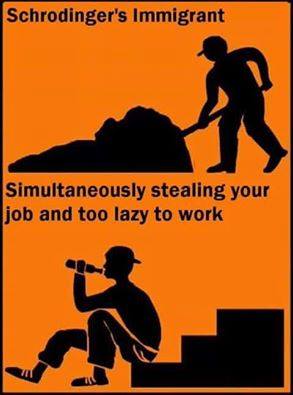The topic of immigration, like tax, hospitals, and the obligatory tieless family photo, is a sure-fire sign that a general election is looming. Last week, in preparation for this contentious voter rouser, National announced their proposed changes to New Zealand’s immigration system.
To cut a slightly dry story short, the government has moved to align their definition of “skilled migrant” with the income level of said immigrant. How very National. Better summaries exist elsewhere, but if you (or your overseas candidate) work within the list of skilled occupations, you will only remain on this list if you earn over the New Zealand median income of $48,859. If however, you work in an occupation not previously considered skilled, but earn over $73,299, you automatically get the same points as a “skilled worker”. And if you’re lucky enough to earn over $97,718 a year, hell, you’ll be handed your stubbies and Crusaders shirt in no time.
For those “less skilled” workers, they’ll be limited to a maximum of a three year visa, after which a “stand-down period” will apply before another visa can be approved. It is these “low skilled” (or now “low paid”) workers who will feel the pinch most under these new changes. My favourite budgie cage liner claims that a “study of more than 600 skilled migrant category applications being considered as at March 1 found more than two in five would not have met the new income threshold.” A big shift indeed.
In terms of what we do as recruiters, it’ll impact those recruiting in any low paid industry. Early Childhood Teachers for example, currently on the skilled migrant list, need to make sure they’re earning over $49k, or an arduous battle could await. On the flip side, if your candidates operate in a highly paid, yet previously “unskilled” profession, you could be quids-in. And when it comes to recruiting recruiters for your business, providing you’re paying them above $49k, it’s business as usual. You’ll actually have the option to give that high-billing UK recruiter some bonus points if you think they warrant a $98k basic salary.

Labour’s response, under the often-toothless Andrew Little, seems to be both populist and confused. They’ve told us they’ll reduce immigration by “tens of thousands”. A figure often given by those who don’t know their arse from their elbow. And they ironically don’t seem to like labourers. Apparently, New Zealand’s infrastructure can’t cope with an influx of manual workers. We’ll clearly need to build more roads, houses, and train lines before we can let labourers into the country…
Winston Peters took this to the next level of course. Read his opinions on immigration if you must, but they’re predictably consistent with his modus operandi. Why anyone listens to a man who dresses like a crap estate agent and acts like your pervy, racist uncle at a wedding is beyond me.
And here lies one of many dichotomies for people in the people industry. With the UK committing freedom of movement harikari via Brexit, to that bequiffed, small-handed fuck-nugget building a 2,000 mile long wall, it seems the doors are rapidly closing on foreign workers. In the same breath, we are also told of talent shortages. The way we are heading, and without “growing our own”, talent pools could soon run as dry as Gandhi’s jandal. We’re also told that we don’t have the infracture to support more people, yet we’re also proposing to exclude those prepared to dig the holes. Both parties seem to operate under the assumption that unskilled labour is not required, or at least not in the numbers previously accepted. National’s policy, sensible at first glance, wants to build a country or middle-managers, but without anyone to actually….well…build. Labour’s policy, from what can be understood, is even harder on those who lay the tarmac and build the schools and hospitals that we all rely upon.
Wherever you stand on immigration, the times they are a’changin’; On one side, we’re more globally connected than ever. Technology has allowed us to access our “desk” from our bedroom, working for paymasters based anywhere on this planet.
Where that bedroom is based however, still seems dependent on the colour of your passport.

